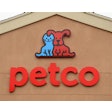
Now that an e-commerce strategy for selling your products has become more of an imperative than a three-year plan, it pays to understand your options. In pet food, there are plenty: You can jump onto the big players like Amazon or Chewy; you can work with retailers to ensure your products are promoted on their e-tail platforms; or you can sell directly through your own website. You can help retailers offer curbside pickup, create subscription services, deliver from warehouses, offer discounts on repeat orders or bulk ordering … truly, the possibilities seem endless — and overwhelming. Below are some guidelines that may help you figure out where to start.
How do I choose the best e-commerce platform?
“The truth is, the best e-commerce platform is the one that successfully delivers the outcomes and objectives that you have set for your business,” said Sam Saltis, CEO at Core dna, an all-in-one digital “software as a service” (SaaS) platform that allows companies to create solutions for content, marketing, e-commerce, intranets and communities in one user interface. In his “How to Choose the Best E-commerce Platform: The Ultimate Guide,” Saltis covers a lot of ground, including what factors you should consider when selecting an e-commerce solution:
- Vendor experience and expertise: Make sure any potential vendors have both the technical expertise to handle your specific needs and experience in working with the pet food industry — or an industry similar enough for that experience to carry over.
“Find someone who understands where you’re coming from,” said Berenice Giannini, co-founder at eTailPet, a platform that facilitates online sales for independent pet retailers.
- Support: Things will probably go haywire at some point. Make sure a potential vendor’s support capabilities include 24-hour emergency support and multiple avenues of contact (email, web chat, phone). And if you’re planning to operate your own platform?
“Find someone who offers a lot of support on the platform-building side,” said Giannini. “And find someone who can give you the right tools — is it easy for anyone (in your business) to come in and start using the platform?”
- Scalability: Can the potential e-commerce platform grow with your business? That question can go both ways, as well. With the increase in popularity of e-commerce, can you grow with potential new online business?
“You need to understand whether you can fulfill all the orders you’re going to get,” said Teddy Smith, co-founder of Ace Listing, which creates optimized Amazon listings for clients looking to stand out on the platform.
- SEO-friendliness: Look for a platform that comes with comprehensive SEO (search engine optimization) features to help you rank highly in search results.
“Unless you can find the right keywords for your products to appear on, it’s going to be quite difficult for you to make sales if people aren’t looking for it,” said Smith. “It’s really important to make sure you understand the demand for the product and understand the competition.”
- Mobile-friendliness: People shop on their phones. Make sure the platform you choose has solid mobile capabilities.
At the end of 2019, Business Insider Intelligence reported that so-called “m-commerce” (e-commerce but on a mobile device) would reach US$284 billion, 45% of the total U.S. e-commerce market, by the end of 2020. Given the current state of things, that number is likely to shift by the end of this year.
- Security: Any potential vendor should have all the necessary security protocols to keep shoppers safe.
Data loss, either losing control over financial information someone supplied to you (say, during a purchase) or losing your own data (such as gathered consumer data) because someone breached your system and took it, is perhaps the topmost security concern when dealing in e-commerce. Make sure that whatever platform you go with, and the vendor behind it, have all the vital protocols needed to ensure no one’s information goes where it isn’t supposed to go.
Read the companion article, "Finding success in the pet e-commerce space,” published in the September 2020 issue of Petfood Industry magazine.

















